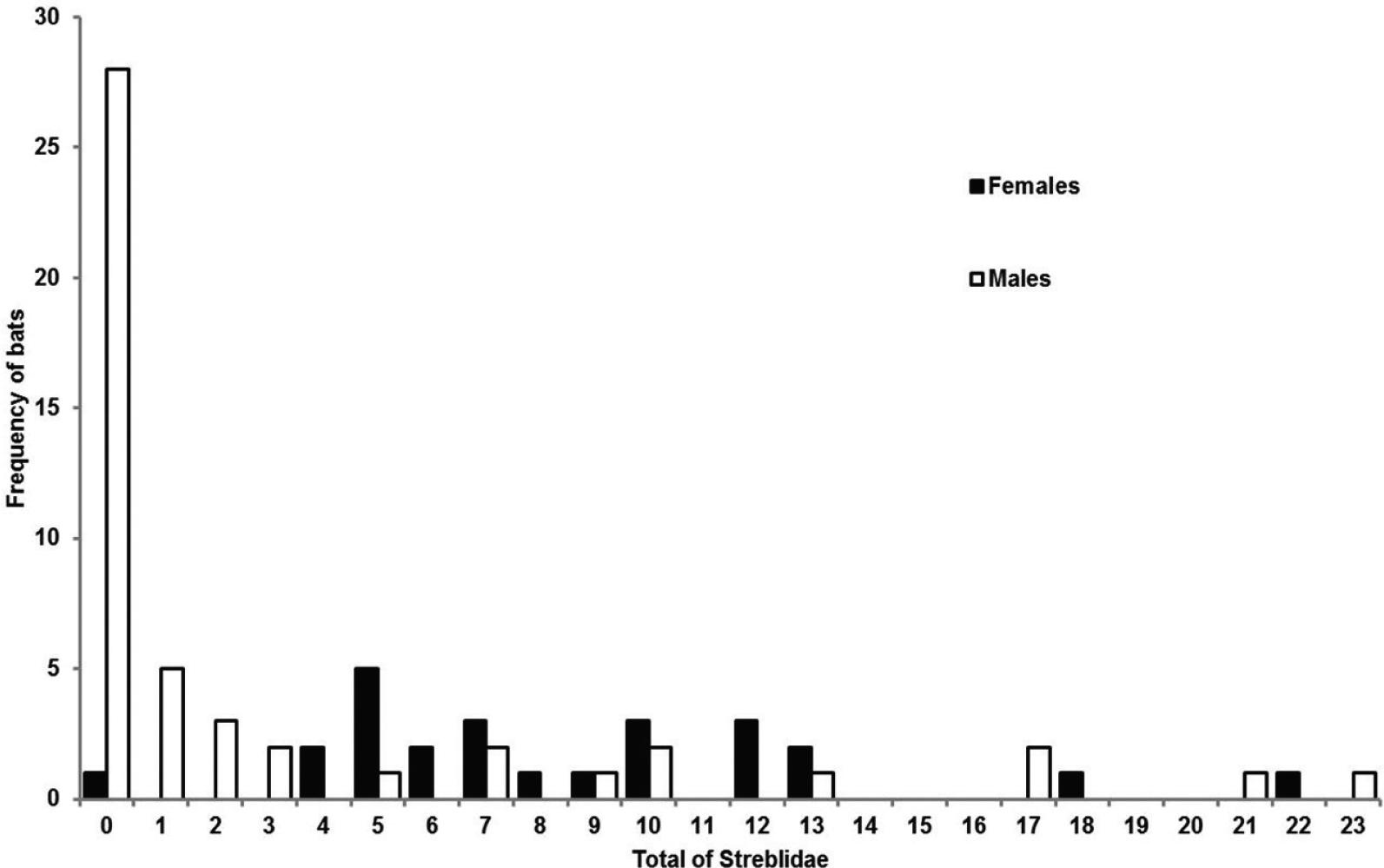Among the factors that influence the diversity of ectoparasites on bat hosts are the kind of roost and the host's social behavior. Other factors such as sex, reproductive condition and host size may influence the distribution and abundance of ectoparasites. The aim of the present study was to analyze the variation in Streblidae ectoparasites on the bat Phyllostomus hastatus, according to sex and roost type. We caught bats in four houses on Marambaia Island, municipality of Mangaratiba, and in one house at the Federal Rural University of Rio de Janeiro, municipality of Seropédica. We caught 65 females and 50 males of P. hastatus and 664 streblids of four species: Aspidoptera phyllostomatis, Strebla consocia, Trichobius“dugesii” complex and Trichobius longipes. The species T. longipes accounted for more than 99% of all the ectoparasites caught. Female bats were more parasitized than males, in terms of both prevalence and average intensity. The total number of parasites did not vary between resident and non-resident bats. The relationship between the number of individuals of T. longipes and sex and roost type was significant for resident bats. The total number of parasites on males did not differ between bachelor roosts and mixed-sex roosts. The differences found between roosts reflected the differences between the sexes.
Streblid; flies; roost; bats; sex; Southern Brazil



